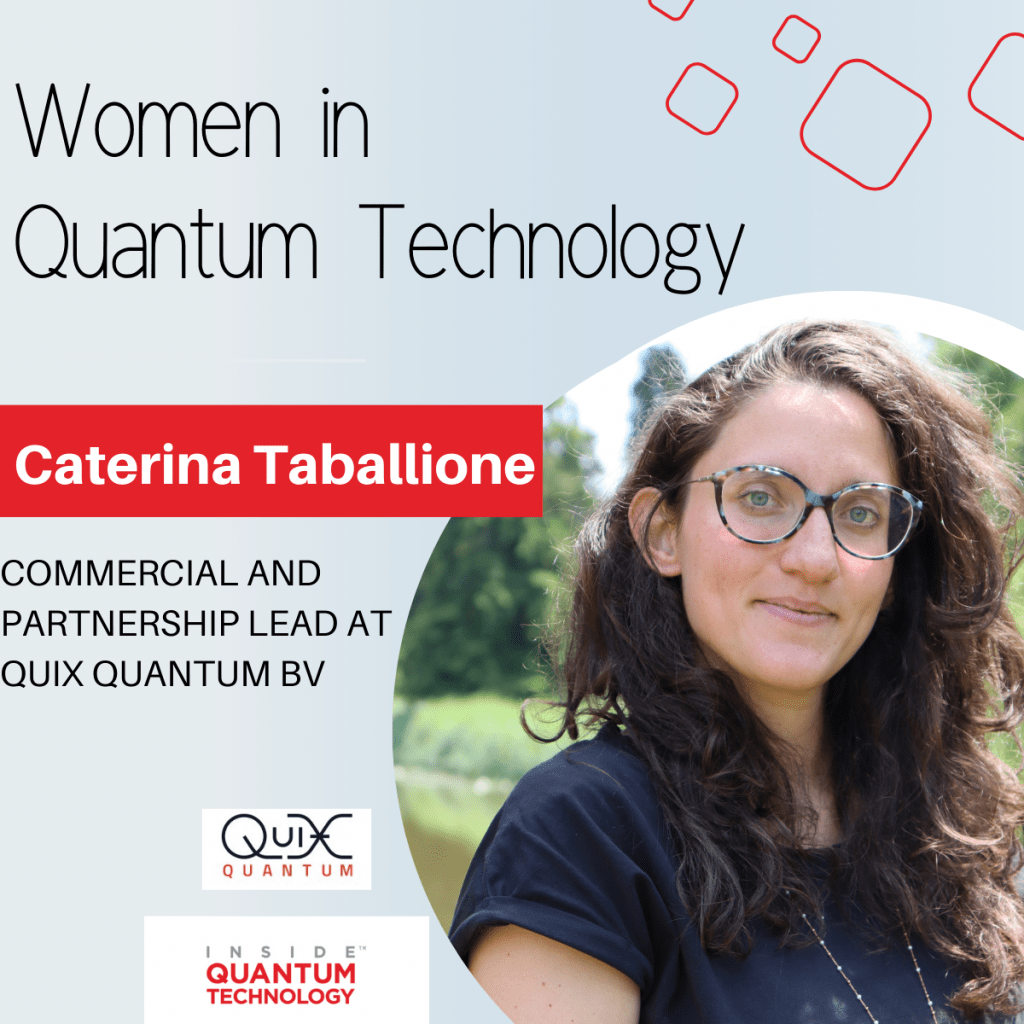In the dynamic and challenging field of quantum technology, the intersection with mathematics is intricate and crucial. Caterina Taballione, serving as the Commercial and Partnership Lead at company QuiX Quantum BV, is one of the individuals to relish in this intersection. Her love of mathematics and quantum science became more apparent during her master’s degree. “I got extremely fascinated by the mathematical theory of communication by Claude Shannon, which led me to follow a few courses on quantum information processing,” Taballione told Inside Quantum Technology. “From that, I discovered the world of experimental quantum optics and fell in love. What interested me was the combination of mathematics to describe information and photons, the quantum particles of light that are extremely powerful in transmitting and processing information. I then pursued during my Ph.D. the miniaturization of optical devices and how to confine these photons and how to manipulate them in the micrometer scale.”
Taballione hoped to enter the quantum industry after her master’s degree but found few opportunities in this emerging ecosystem. “I tried to enter the quantum industry, but in 2013, there was no one,” she elaborated. “The first quantum engineers/quantum technology study program was just starting. I also realized that my knowledge was quite theoretical, and I wanted to learn more about photonics practically. For this reason, I started a PhD in integrated photonics in the Laser Physics and Nonlinear Optics group of Prof. Klaus Boller at the University of Twente, The Netherlands.”
During her Ph.D., Taballione found herself in the right place at the right time to expand her network into the quantum technology sector. “Midway to my graduation, Dr. Jelmer Renema, our current Chief Scientist, visited Twente, and while drinking a coffee together, we realized that the research group at the University of Oxford, where Jelmer was a Postdoc at the time, would have been able to progress in their research if they would have access to one of the integrated photonics chip that we had in my group. As simple as that, we discussed it with my supervisors, Prof. Boller and Prof. Pinkse, and decided I would drive to Oxford with one of the chips packed at the back of the car. After 3 months of non-stop work in the lab, we got the first great results of the chip as a quantum photonic processor, and thanks to that, QuiX Quantum was born.” QuiX Quantum is a market leader in European photonic quantum computing, and Taballione was excited to join the company as it began in 2019.
While Taballione started her career at QuiX as a Quantum System Engineer, she quickly became the Commercial and Partnership Lead. This role allows her to have a multidisciplinary approach to expanding QuiX’s influence. “What my team focuses on ranges from business development and partnership to marketing,” Taballione elaborated. “We want to bring our quantum computing platform based on photonics across Europe, and we believe that we can achieve this only by striving for strategic cooperation and by leading the European industry ecosystem. We also want to use our work to disseminate knowledge, educate people, industry, and governments on what quantum computing is, and give them perspective on the required technology development.”
Thanks to her leadership position at QuiX, Taballione sees how important it is to improve the diversity of this ecosystem. “Improvement can be implemented by having attractive study programs developed closely with the companies in the sector. Educating people, reaching out to large/mass audiences, allowing everyone to develop their passion for quantum, especially in low developed countries.” Taballione also highlighted that a specific approach needed to be taken to include more women specifically. “Regarding women, I think it goes with both giving the image that quantum is also for them and having a support system for maternity and daycare/nannies. Something as simple as having funding and a support net to enable women in quantum to travel and relocate without worrying about who could take care of their kids or the cost of bringing them along it would have a great impact in making new mums feel safe and empowered,” she added.
Kenna Hughes-Castleberry is the Managing Editor at Inside Quantum Technology and the Science Communicator at JILA (a partnership between the University of Colorado Boulder and NIST). Her writing beats include deep tech, quantum computing, and AI. Her work has been featured in Scientific American, Discover Magazine, New Scientist, Ars Technica, and more.
